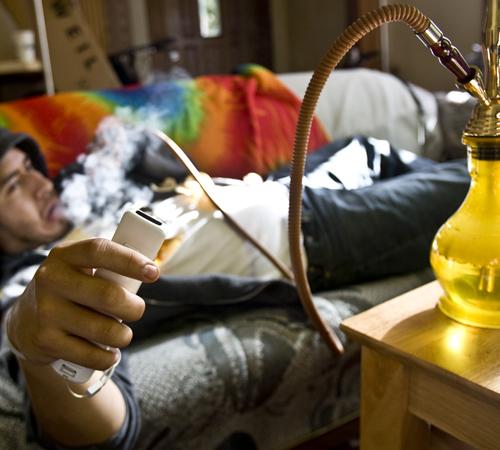Roommate video gamers affect GPA

Photo illustration by Brad Vest Laura Prusik
Sep 17, 2007
Last updated on May 12, 2016 at 03:53 p.m.
A study released last week by the National Bureau of Education found that first-year students whose roommates bring video game consoles to school study less and, consequently, have lower GPAs than students without the distraction.
Tim Holmes, junior in LAS, does not play video games but had a roommate last year who would play up to 18 hours per day.
Contrary to the study’s findings, Holmes never felt compelled to play the games.
However, his roommate’s habit of vocally playing them during both day and night made Holmes unable to concentrate and sleep well in his room. Whenever he needed to study, he traveled to a friend’s apartment or a library.
Get The Daily Illini in your inbox!
“Instead of spending 20 minutes to get on a bus or to walk back, it would have been easier to just stay in my room and get work done,” Holmes said.
Holmes believes his grades were impacted by his old roommate’s habits.
“If I had enough sleep going into an exam, and if I were able to use my room to cram for tests and to do homework, I think I would have done better (last year),” Holmes said.
Todd Stinebrickner, one of the authors of the paper and associate professor of economics at the University of Western Ontario, said many college students begin playing video games because they are overexposed to the activity and their grades can suffer from it.
“Everyone knows studying matters to some extent,” Stinebrickner said. “How much is the question, and we found that it’s pretty substantial.ÿFor example, our results show that a student can make up for a fairly substantial deficit in college entrance exams scores by studying an extra hour a day.”
Although excessive video game playing can be a problem, Stinebrickner said that he does not believe video games should be banned and that students should continue to play them in moderation – as long as they find time to study as well.
“It really is worth trying to find that extra hour a day to study,” he said. “It can make a big difference.”
Sue Herbert, coordinator of the academic skills program at the Counseling Center, said that many students feel video games are one of their main sources of procrastination. To prevent video games from taking away time for studying, Herbert suggests that students learn time management skills.
“Putting together a ‘to-do’ list is the best thing students can do,” Herbert said. “They should assign specific times to finish what they want to accomplish and be sure to prioritize.”
Priscilla Fortier, associate director and coordinator of academic services at the Office of Minority Student Affairs, believes that students who frequently play video games should add regular activities to their schedule.
“I would encourage students to get a 10-hour-per-week job,” Fortier said. “It really helps put the structure into their lives that might be missing when they go away to school for the first time.”





